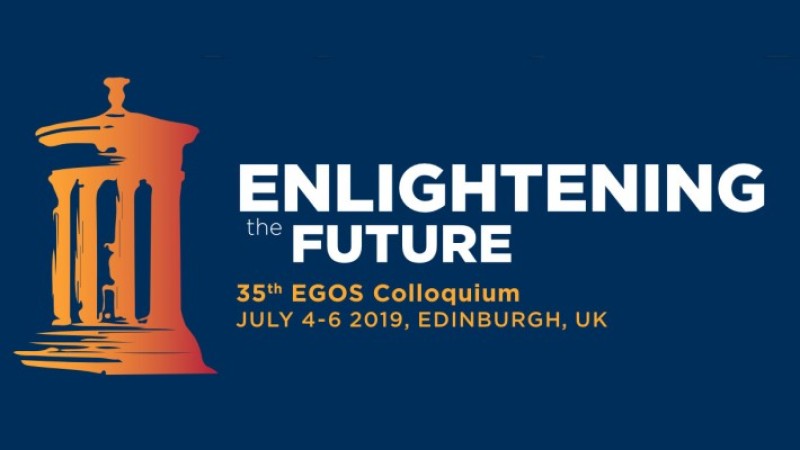Sub-theme 68: The Unsettled Humanities, (Anti-)Humanism and the Future Challenges of Organization --> Merged with sub-theme 26
Call for Papers
The contribution of the humanities to the understanding and practice of organization forms a respectable canon of scholarship
in organization and management studies (OMS) (Steyaert et al., 2016; Gagliardi & Czarniawska, 2006). Reflected in this
scholarship is an often implicit, much repeated critique of management in its various organizational forms for its inherent
lack of humanity and its tendency to limit organizational analyses of the human being to that of a rational, morally neutral
and interest maximizing actor (Hendry, 2006). In such a light, the humanities are meant to act as a moral shepherd of the
world of management, ensuring that the economic logic does not lead to actions of ethical, social and economic irresponsibility.
However, over the past century the humanities have themselves been facing a complex crisis involving their identity
as the champion of an objective natural moral order (Martinelli, 2016). In response to this crisis, it has been argued that
the unsettling of the humanities as a field with privileged access to studying the ‘especially human’ rather should give rise
to a critical exploration and reinvention of notions of the human (Braidotti & Gilroy, 2016, p. 1). In this sub-theme,
we want to further the thoughts on what this implies, with focus on the role of the humanities as a critical practice, and
what it currently might imply if the quest is to yet again enlighten the future of organization and management.
Echoing the Kantian slogan for the Enlightenment – Dare to know! – a way of thinking constructively about this
challenge could begin by opening up OMS to the view that research should be pursued under a “license to think freely” (Grey,
2009), where researchers feel free to become more inclusive and contextually sensitive by engaging with the disciplines of
the humanities – history, literature, classics, philosophy, religion, law, ethics, languages, the fine and performing arts.
How can such forages into the humanities enrich organizational research with a more extensive conceptual vocabulary, while
at the same time avoid falling back into the rather stale view of the humanities as a shepherd of the morally inferior? Opening
up such perspectives may help to cut across the parallelism between philosophy, science and the arts (Braidotti, 2013; Serres,
2007) and work against the idea of the humanities as a harmonious whole preordained by rational thought. This raises questions
concerning what it might mean to speak of something like an “emancipatory humanism” (Karavanta & Morgan, 2008, p. 4),
or even of an emancipatory “anti-humanism”, challenging the moral essentialism on which traditional humanist projects are
grounded (Haraway, 1991).
The question about how the unsettled humanities may affect, or spur ideas for organization
and management may also be explored in relation to the rich and fast-growing theoretical issues that emerge around the edges
of the classical humanities and across disciplines. One example is the ‘digital humanities’, emerging as a reciprocal integration
of disciplines around the use or study of digital tools that call for concepts, methods and knowledge rooted in the humanities
(Svensson, 2011). Another emerging field being the ‘environmental humanities’ – also known as the sustainable or Anthropocene
humanities (Rose et al., 2012). Whereas the role assigned to the humanities in OMS generally has been conceived as a vitalizing,
yet peripheral source of inspiration, there have been more theoretical attempts across other fields to actively rethink the
ontological exceptionality of the human and engage in the quest for a future post-Enlightenment holism (Scerri, 2016).
Consequently, what might it mean to take the humanities one step further to respond to the future challenges
of organization and management? In other words, how can we mobilize different conceptualizations of the humanities, and explore
their potential in to affirm new directions that enrich organizational research?
Based on these themes, we
welcome contributions that address some of the following questions:
How is OMS transformed, reinvented and enacted with the current unsettling of the humanities?
What new conceptual vocabularies might emerge from the unsettling of the humanities and how could they transform OMS?
What can OS scholars learn from contemporary and historical discussions of the humanities, humanism and post-humanism?
How do literature, fiction and art relate to the current political landscape of post-truth and ‘pre-Enlightenment’?
How might management come to play a role in the reinvention of notions of the human and in the critical practice of the humanities?
References
- Braidotti, R. (2013): “Posthuman humanities.” European Educational Research Journal, 12 (1), 1–19.
- Braidotti, R., & Gilroy, P. (2016): Conflicting Humanities. London: Bloomsbury.
- Gagliardi, C., & Czarniawska, B. (2006): Management Education and the Humanities. Cheltenham: Edward Elgar.
- Grey, C. (2017): “License to Think.” Management Learning, 40 (4), 353–356.
- Haraway, D. (1991): Simians, Cyborgs and Women. The Reinvention of Nature. London: Free Association Books.
- Hendry, J. (2006): “Educating managers for post-bureaucracy: The role of the humanities.” Management Learning, 37 (3), 267–281.
- Karavanta, M., & Morgan, N. (2008): Edward Said and Jacques Derrida. Reconstellating Humanism and the Global Hybrid. Newcastle: Cambridge Scholars Publishing.
- Martinelli, D. (2016): “Background: The Crisis of the Humanities.” In: D. Martinelli: Arts and Humanities in Progress. A Manifesto of Humanities. New York: Springer, 1–9.
- Rose, D., van Dooren, T., Chrulew, M., Cooke, S., Kearnes, M., & O’Gorman, E. (2012): “Thinking Through the Environment, Unsettling the Humanities.” Environmental Humanities, 1, 1–5, https://environmentalhumanities.org/arch/vol1/EH1.1.pdf
- Scerri, A. (2016): “Deep ecology, the holistic critique of enlightenment dualism, and the irony of history.” Environmental Values, 25 (5), 527–551.
- Steyaert, C., Beyes, T., & Parker, M. (2016): The Routledge Companion to Reinventing Management Education. London: Routledge.
- Svensson, P. (2011): “The Digital Humanities as a Humanities Project.” Arts and Humanities in Higher Education, 11 (1-2), 42–60.
- Serres, M. (2007): The Parasite. Minneapolis: University of Minnesota Press.


